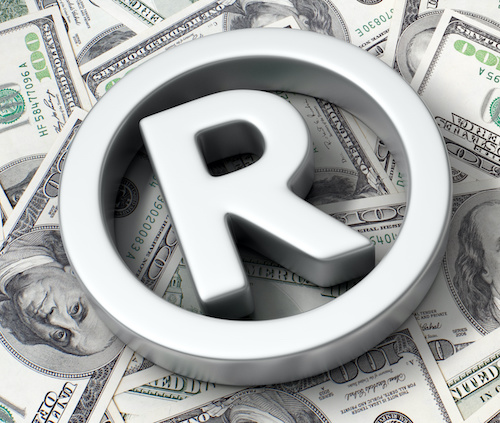“Intent is not necessary to demonstrate a violation of § 1114(1)(a). Given this underlying principle, individual liability under that provision does not demand proof of scienter.” – Eleventh Circuit
 The U.S. Court of Appeals for the Eleventh Circuit yesterday backed a Georgia district court’s finding that Diamond J Wholesale LLC and its owner, Raj Solomon, willfully infringed trademarks owned by Top Tobacco, L.P., Republic Technologies (NA), LLC, and Republic Tobacco, L.P. (Top Tobacco). The ruling upholds an $11 million verdict in favor of the tobacco companies.
The U.S. Court of Appeals for the Eleventh Circuit yesterday backed a Georgia district court’s finding that Diamond J Wholesale LLC and its owner, Raj Solomon, willfully infringed trademarks owned by Top Tobacco, L.P., Republic Technologies (NA), LLC, and Republic Tobacco, L.P. (Top Tobacco). The ruling upholds an $11 million verdict in favor of the tobacco companies.
A jury in the U.S. District Court of the District of Georgia awarded Top Tobacco $11 million in damages against the wholesale company and its owner in March of 2022. On appeal, Diamond Wholesale argued that the district court erred in excluding evidence, including witness testimony and invoices, which would have proven they believed they were purchasing the counterfeit products from a legitimate company (Star Importers), and that their infringement could therefore not have been willful.
No Abuse of Discretion
The appellate panel removed the case from the oral argument calendar and decided the case on the briefs, explaining that the district court did not abuse its discretion in excluding the cited evidence because a) the testimony was from a person who had not purchased products from Star Importers during the relevant time period; and b) the invoices had not been turned over during discovery. Diamond had “only brought them to the district court’s attention a year or so after the discovery deadline ended,” wrote the appellate court.
Harmless Error
Furthermore, the invoices were not even for transactions between Diamond and Star Importers, so any error would have been harmless, continued the court.
Diamond also argued the district court failed to take judicial notice of the definition of “culpability” but the Eleventh Circuit said Diamond could have included their definition of “culpability” in the jury instructions and ultimately chose not to. “Given that course of action, any error in declining to take judicial notice of the definition was invited, is procedurally barred, or was harmless, or a combination of those three things,” said the court.
Individual Liability
With respect to the district court’s grant of summary judgment finding Solomon individually liable, Solomon argued that there were genuine issues of fact outstanding as to his state of mind and that knowledge of infringement is required to establish individual liability under the Lanham Act. But the Eleventh Circuit, citing Chanel, Inc. v. Italian Activewear of Fla., Inc., said that a “showing of intent or bad faith is unnecessary to establish a violation” under U.S.C. § 1114(1)(a). All that is required under that provision is that the individual “actively and knowingly caused the infringement,” said the court. Since Solomon was the sole owner and member of Diamond and conceded that “he was ‘chiefly responsible for buying and selling the counterfeit products and therefore ‘actively caused the infringement as a moving, conscious force,’” this was sufficient for the district court to grant summary judgment.
The court further clarified:
“Simply stated, we held in Chanel, 931 F.2d at 1476, that intent is not necessary to demonstrate a violation of § 1114(1)(a). Given this underlying principle, individual liability under that provision does not demand proof of scienter. Any issues of fact relating to Mr. Solomon’s state of mind were therefore not material.”
In a footnote, the court explained that, while willful infringement does require knowledge, such knowledge is “usually a matter for the fact-finder” and the jury found that Solomon had acted willfully.
Image rights acquired through AdobeStock.

![[IPWatchdog Logo]](https://ipwatchdog.com/wp-content/themes/IPWatchdog%20-%202023/assets/images/temp/logo-small@2x.png)

![[Advertisement]](https://ipwatchdog.com/wp-content/uploads/2024/04/UnitedLex-May-2-2024-sidebar-700x500-1.jpg)
![[Advertisement]](https://ipwatchdog.com/wp-content/uploads/2024/04/Artificial-Intelligence-2024-REPLAY-sidebar-700x500-corrected.jpg)
![[Advertisement]](https://ipwatchdog.com/wp-content/uploads/2024/04/Patent-Litigation-Masters-2024-sidebar-700x500-1.jpg)

![[Advertisement]](https://ipwatchdog.com/wp-content/uploads/2021/12/WEBINAR-336-x-280-px.png)
![[Advertisement]](https://ipwatchdog.com/wp-content/uploads/2021/12/2021-Patent-Practice-on-Demand-recorded-Feb-2021-336-x-280.jpg)
![[Advertisement]](https://ipwatchdog.com/wp-content/uploads/2021/12/Ad-4-The-Invent-Patent-System™.png)






Join the Discussion
No comments yet.